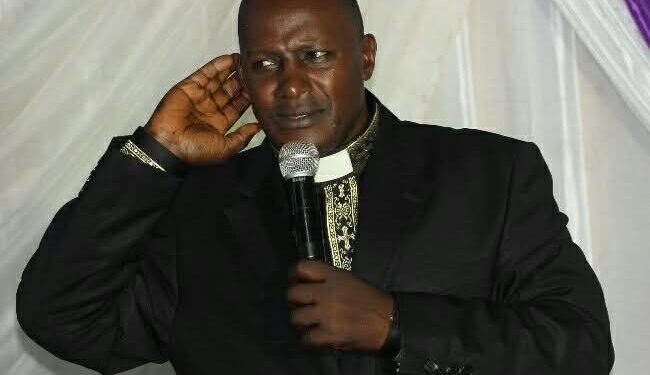Reverend Dr. Philemon Nfor, Senior Pastor of Patmos Baptist Church in Yaounde, challenges claims that the Church should refrain from criticising the government due to the belief that authorities are appointed by God.
Cameroonian officials show intolerance towards criticism and often claim that the government deserves no public critique, citing the Bible’s assertion that all authorities are appointed by God.
However, speaking during a recent program on CRTV, Pastor Philemon Nfor disagreed that the church should not criticise the government.
He argued that the Church, as the “moral voice” of society, must call the government to order when authorities fail in their duty to develop the country, punish evil, and reward good behaviour.
He responded to a question from CRTV presenter Moki Edwin Kindzeka about whether the Church has the right to criticise governing politicians, considering that the Bible states authorities are divinely appointed.
“God has appointed leaders, and God has given them an assignment. It’s not an appointment for them to go and do whatever they want. That appointment comes with an assignment. They are supposed to lead development, and the Bible specifically says that the leaders are supposed to punish those who do wrong and reward those who do right. Now if the leaders find themselves promoting corruption, giving a blind eye to bribery and mismanagement, and are just behaving like they are not seeing it or even becoming a part of that evil, they should be called to order,” Rev. Philemon Nfor said.
Increasing Calls by Church Leaders
The debate on whether the Church should or should not criticise the state comes after some Roman Catholic bishops in Cameroon called on President Paul Biya not to seek re-election.
The Bishop of Yagoua, in the country’s Far North, even said it would be better to have a devil than to have 91-year-old Paul Biya rule Cameroon again as the country elects a new president in October.
The Archbishop of Douala, His Grace Samuel Kleda, also said it would be unrealistic for Biya to stand again for reelection.
In a collective statement released Saturday, January 11, bishops in Cameroon strongly condemned corruption, mismanagement, and bad governance in Cameroon.
They blamed mismanagement and lack of government will to fight corruption for the alarming levels of poverty in the country.
The prelates’ criticisms prompted reactions from some government ministers, including the Minister of Public Health and Minister of Communication, René Sadi.
Minister Sadi, who is also a government spokesperson, reacted in a statement that criticised Bishops’ call against President Biya’s candidacy.
Minister Sadi stated that the church and state should collaborate for development and peace, rather than competing.
But it appears the Cameroon government does not believe that the church should be its moral conscience, as prelates like Rev. Philemon Nfor said.
The Baptist pastor asserted that the church must proclaim the truth of the gospel of Christ as well as speak the truth about the state of morality in society.
He added that when leaders fail in their duty to punish evil and reward good, “the moral voice of the nation should call their attention so that they can repent, do well, and manage the nation correctly.”
Abstaining Churches
Not all church leaders in Cameroon, however, reason like Rev. Nfor Philemon and the Catholic Bishops.
Some church leaders, like the President of the Evangelical Church of Cameroon, Rev Bila Mbenga Alexander, have banned all pastors of the church from making political statements.
He said any communication relating to socio-political issues in Cameroon is the work of the EEC’s Synod, not individual pastors.
He made the proclamation after a pastor of the church criticised the government, attracting a police summons.
Government officials in Cameroon are not comfortable with criticism from anyone, be it from the church, human rights activists, journalists, or other politicians.
The Biya regime, which has ruled Cameroon for 42 years, views criticism as contemptuous and anti-republican. However, citizens continue to hope that the Church will live up to its divine task of speaking the truth to society without fear or favour.
Rev. Philemon Nfor expressed regret that some pastors lack the courage to speak the truth, particularly when they are aware that doing so could result in arrest, persecution, or even death.
“But you know you can’t hold the Bible or the Koran and not speak the truth because it is truth that will set us free in every situation,” he said.



